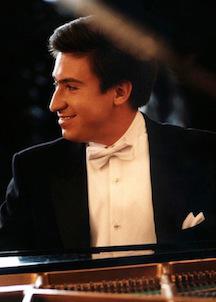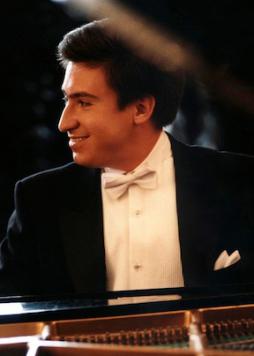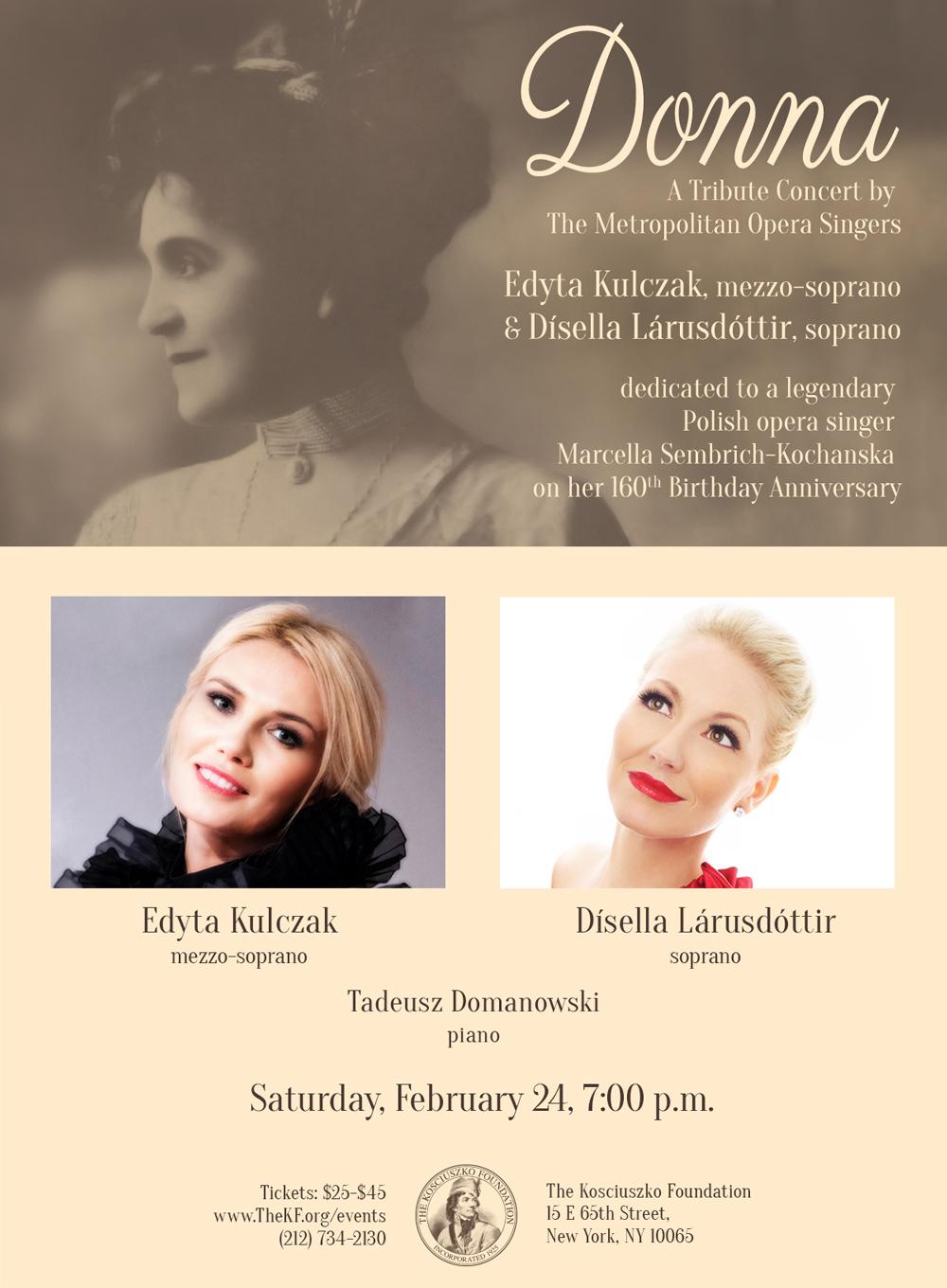
Past events
Donna - concert by Edyta Kulczak, mezzo-soprano and Dísella Lárusdóttir, soprano
Saturday, February 24, 2018, at 7:00pm
View Event Photos
DONNA
A tribute concert to Marcella Sembrich-Kochanska on her 160 Birthday Anniversary featuring the Metropolitan Opera singers:
Edyta Kulczak, mezzo-soprano & Disella Lárusdóttir, soprano
Tadeusz Domanowski, piano
Saturday, February 24, 7:00 p.m.
The Kosciuszko Foundation: 15 E 65th Street, New York, NY 10065
Tickets: $25 - $45
Mark your calendar for Saturday, February 24th at 7:00 p.m. for a special evening with the Metropolitan Opera singers: Edyta Kulczak, mezzo-soprano and Disella Lárusdóttir, soprano as they give a tribute concert to Marcella Sembrich-Kochanska, one of the greatest opera singers of the turn of the 19th and 20th century, the first star in the history of the Metropolitan Opera, and an activist involved in the fight for the Polish cause during WWI. The program will feature arias and songs from the repertoire sung by Marcella Sembrich. Tadeusz Domanowski will provide piano accompaniment. Wine reception will follow the concert.
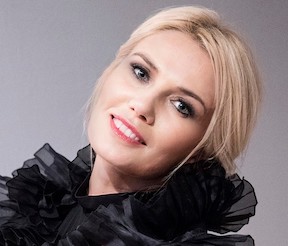
Possessing "brilliant and expressive singing with a tremendous sensitivity to character" (Ariadne auf Naxos Boston Musical Intelligencer) Edyta Kulczak has been a principal resident artist at The Metropolitan Opera since her debut as Flora in La Traviata in 2003.
Ms. Kulczak has performed over 300 times at The Metropolitan Opera in productions that include: Aida, Ägyptische Helena, Carmen, La Forza del Destino, Die Frau ohne Schatten, The Gambler, Lucia di Lammermoor, Lulu, Madama Butterfly, The Makropulos Case, Moses und Aron, Le Nozze di Figaro, Parsifal, Rigoletto, Rusalka, Suor Angelica, Le Rossignol, Simon Boccanegra, Il Trovatore, Les Troyens, I Vespri Siciliani, Die Walkürie, Rigoletto. During the 2016/17 season, Ms. Kulczak sang in Cyrano de Bergerac with leading tenor Roberto Alagna. This season, she again received critical acclaim as Flora in La Traviata under the direction of Nicola Luisotti. MORE
 Described by The New York Times as "reliably breathtaking" and Opera News as having a voice of "bewitching beauty and presence," Icelandic soprano Dísella Lárusdóttir is quickly gaining international attention for being one of the most promising talents of her generation. With her beautiful voice, compelling artistry, charismatic stage presence, and unusual musical stylistic versatility, Ms. Lárusdóttir is successfully redefining what it means to be an opera singer in this day and age.
Described by The New York Times as "reliably breathtaking" and Opera News as having a voice of "bewitching beauty and presence," Icelandic soprano Dísella Lárusdóttir is quickly gaining international attention for being one of the most promising talents of her generation. With her beautiful voice, compelling artistry, charismatic stage presence, and unusual musical stylistic versatility, Ms. Lárusdóttir is successfully redefining what it means to be an opera singer in this day and age.
In February 2014, Ms. Lárusdóttir performed the role of First wood sprite in Dvořák's Rusalka, starring Renée Fleming and Piotr Beczała. During the 2012-2013 season, Ms. Lárusdóttir made her Metropolitan Opera debut as Garsenda in Zandonai's Francesca da Rimini, starring Eva-Maria Westbroek and Marcello Giordani, and also performed the role of Woglinde in Wagner's Götterdämmerung and Das Rheingold. Ms. Lárusdóttir has been involved in number of other productions such as Philip Glass' Satyagraha, Mozart's La Clemenza di Tito, Britten's A Midsummer Night's Dream, Strauss' Die Frau Ohne Schatten, Mozart's Die Zauberflöte, Donizetti's L'Elisir d'Amore, Dvořák's Rusalka, Rossini's La Cenerentola, Bellini's La Sonnambula, and the Baroque pastiche, The Enchanted Island. MORE
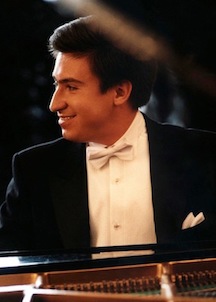
Tadeusz Domanowski graduated from the Fryderyk Chopin Academy of Music in Warsaw, where he studied under Professor Andrzej Stefański. He is also a graduate of New York University, where he studied piano with prof. Deirdre O'Donohue. He continued his pianistic development on numerous master classes and private coachings with such masters like Menahem Pressler, Lazar Berman, Stephen Kovacevich, Jerome Rose, John Owings, Pavel Gililov, Vladimir Viardo, Aldona Dvarionaite.
Over the past two decades Domanowski toured extensively as soloist throughout Europe, America and Asia, performing in such prestigious venues as Weill Recital Hall at Carnegie Hall, Warsaw Philharmonic Hall, and Lutosławski Concert Hall at the Polish Radio, Vilnius Philharmonic Hall, and Musikhalle in Hamburg. He has given recitals and performed as a soloist with symphony orchestras at numerous music festivals, including the Polish Piano Festival in Słupsk, the International Chopin Festival in Nohant (France), the Harbin Summer Music Festival (China), Martisor 2003 Music Festival in Chisinau (Moldova), the Music Festival in Bad Gandersheim (Germany), and Ionio Festival Paolo Carrer (Greece). MORE
Marcella Sembrich-Kochanska was and artist during the turn of the 19th and 20th Centuries. Her native land, Galicia, was in the process of being ruined and erased from the European map by the vicious first World War. Born before the January Uprising, she was a supporter of the veterans of November. She sang before the Tsars, and the programs of her concerts in Warsaw and Vilnius were subject to censorship by Tsarist officials. While her family name was Kochanska, she achieved fame under her mother's maiden name, which she took for a stage name, as Marcella Sembrich. Few believed that she was Polish, since Poland wasn't even on the map at that point. The year 1915 saw her directing her heartfelt sentiments – as well as considerable sums of money – toward her Fatherland, rising line a Phoenix from the ashes, free at last; she was later a recipient of the Order of Polonia Restituta. The daughters of Mickiewicz and Krasinski – the great Polish poets – were among those who listened to her singing; she also appeared on stage beside Johannes Brahms, and Helena Modrzejewska (Modjeska) was among the many who appreciated her artistry. She danced the Polka with her friend Ignacy Paderewski, was a favorite soloist of conductor Artur Nikisch, and consulted with Puccini himself on how to sing Mimì (...)
- from the biography book: "Marcella Sembrich-Kochanska. Artystka Swiata" by Malgorzata Komorowska and Juliusz Multarzynski, translated by Karol White.
Event Photo Gallery
<< Return to Past events
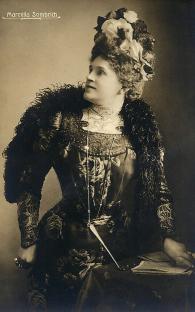
MARCELLA SEMBRICH (1858-1935)
The possessor of sumptuously beautiful coloratura soprano voice with a vocal range of 2.5 octaves, Polish-born, Marcella Sembrich applied the sensibility of a violinist in making her singing voice absolutely unique thereby securing her a place among the most successful opera singers of the 19th and 20th centuries.
Born into a near destitute family in a small village in partitioned Poland, Marcella quickly found her love for music, first from her father, an itinerant music teacher, then to the Lemberg Conservatory and finally to studying voice at the Vienna Conservatory with the encouragement of Franz Liszt.
At the age of 19 Marcella Kochanska made her debut in Athens on June 3, 1877, before King George I and his court. Then triumph followed triumph in most of the capitals of Europe – London, Paris, Madrid, Lisbon, Warsaw and Moscow.
She sang I Puritani, Dinorah, Lucia di Lammermoor, Robert le diable and La sonnambula. In June 1880 Sembrich created a sensation in her debut at the Covent Garden as Lucia in Donizetti's Lucia di Lammermoor. She became a great favorite in the characters of Zerlina, Don Giovanni; Susanna, The Marriage of Figaro; Konstanze, The Abduction from the Seraglio; Lady Harriet/Martha, Martha.
In 1883, Marcella Sembrich was invited to sing in the newly founded Metropolitan Opera company. She made her Met debut as Lucia in the company premiere of Lucia di Lammermoor on October 24, 1883. She was also the Met's first Elvira in I Puritani, Violetta in La Traviata, Amina in La Sonnambula, Gilda in Rigoletto, Marguerite in Les Huguenots and Rosina in Il Barbiere di Siviglia.
In total, she sang more than 450 Met performances in her 11 seasons there, and remained associated with the company until 1909, when the silver jubilee of her Met debut was celebrated with a farewell gala.
After her retirement, she gained preeminence as a vocal teacher at Curtis Institute and Juilliard School. Her students included Alma Gluck, Hulda Lashanska, Queena Mario. Additionally, some of her students in turn became important vocal teachers around the country. Among them were Anna Hamlin (teacher of Judith Raskin) at Smith College, Edith Piper and Florence Page Kimball (teacher of Leontyne Price) at Juilliard, Eufemia Gregory (teacher of Anna Moffo, Judith Blegen and Frank Guarrera) at the Curtis Institute.


